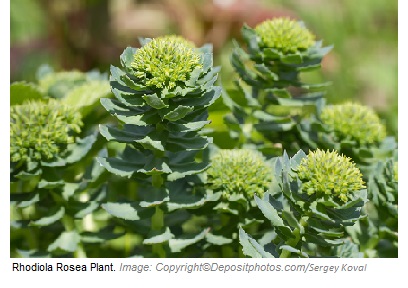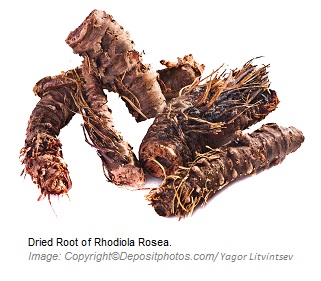Rhodiola rosea is a plant native to Russia and Scandinavia. Known also as golden root,  roseroot, king`s crown, rosewort, and arctic root, rhodiola rosea has anti – stress, anti – depressant, and anti – inflammatory activities. It has been used for many years for a variety of conditions.
roseroot, king`s crown, rosewort, and arctic root, rhodiola rosea has anti – stress, anti – depressant, and anti – inflammatory activities. It has been used for many years for a variety of conditions.
Rhodiola rosea contains many active phytochemicals. They include phenylpropanoids (rosavin, rosin, and rosarin), flavonoids (proanthocyanidins, quercetin, rodiolin, rodionin, rodiosin, and tricin), phenylethanols (rhodioloside, salidroside and tyrosol), monoterpenes (rosiridol and rosaridin), triterpenes (daucosterol and beta-sitosterol), and phenolic compounds (gallic acid and chlorogenic acid).
Athletic Benefits of Rhodiola Rosea:
- Improves athletic performance.
- Increases athletic endurance.
- Delays physical and mental fatigue.
- May help recover from overtraining syndrome.
- Has an antioxidant activity.
- Improves mental alertness and acuity.
- May improve oxygenation.
- Reduces recovery time from intense exercise.
- Shortens reaction time.
Non – Athletic Benefits of Rhodiola Rosea: 
The following conditions may benefit from rhodiola rosea:
- Chronic fatigue syndrome.
- Adrenal exhaustion.
- Aging.
- Cardiopulmonary health.
- Depression.
- Anxiety.
- Stress and mental fatigue.
- Infertility.
- Weight management.
- Cancers.
Dosage and Side Effects:
Rhodiola rosea is used 100 – 600 mg daily on an empty stomach as an adaptogen, and 500 – 1500 mg daily as a sport – performance enhancer. To improve athletic performance, it should be taken about 30 – 60 minutes before exercise or competition.
Rhodiola rosea has a mild stimulatory activity, and high doses could cause nervousness and sleep disturbances.

